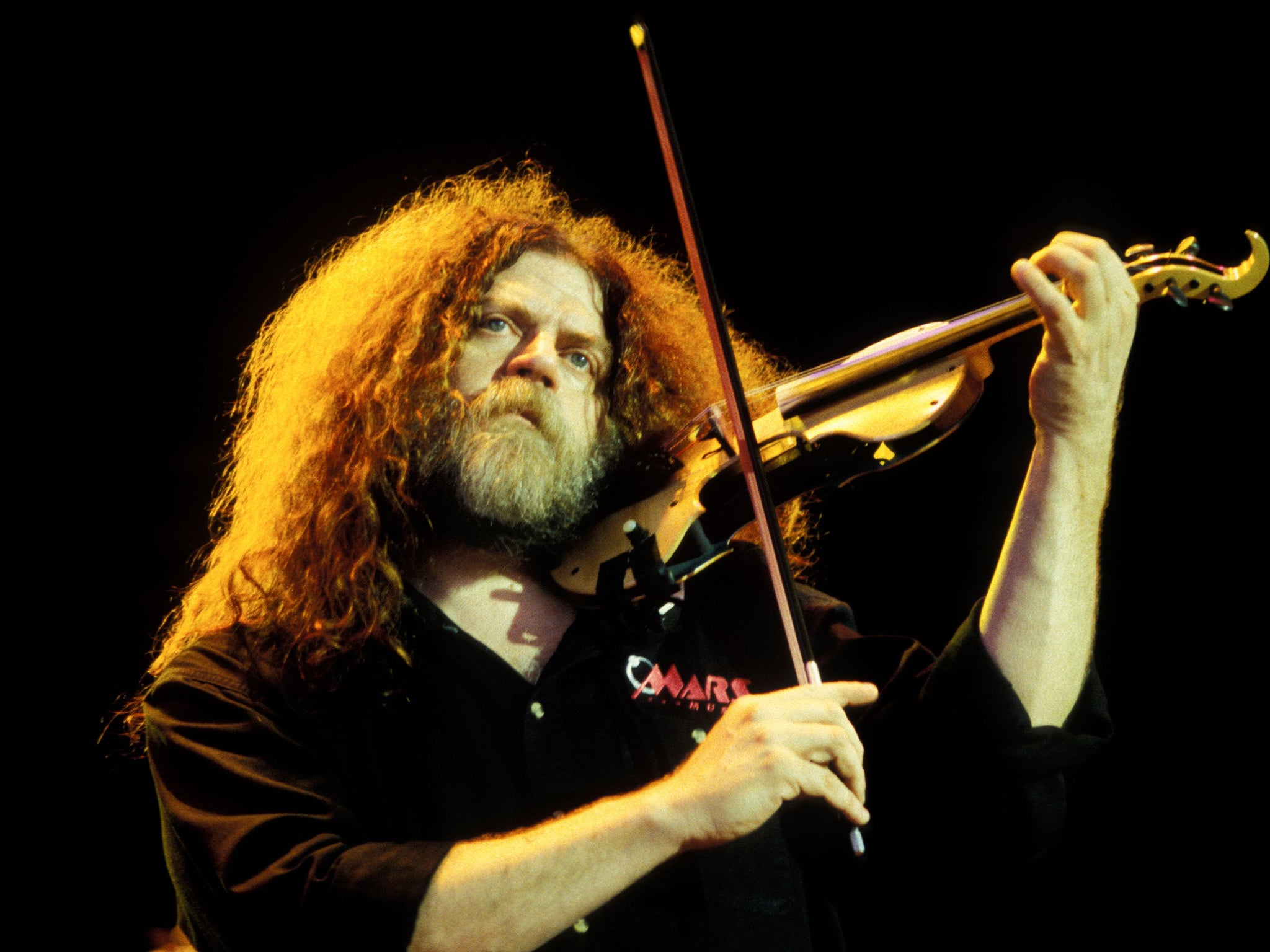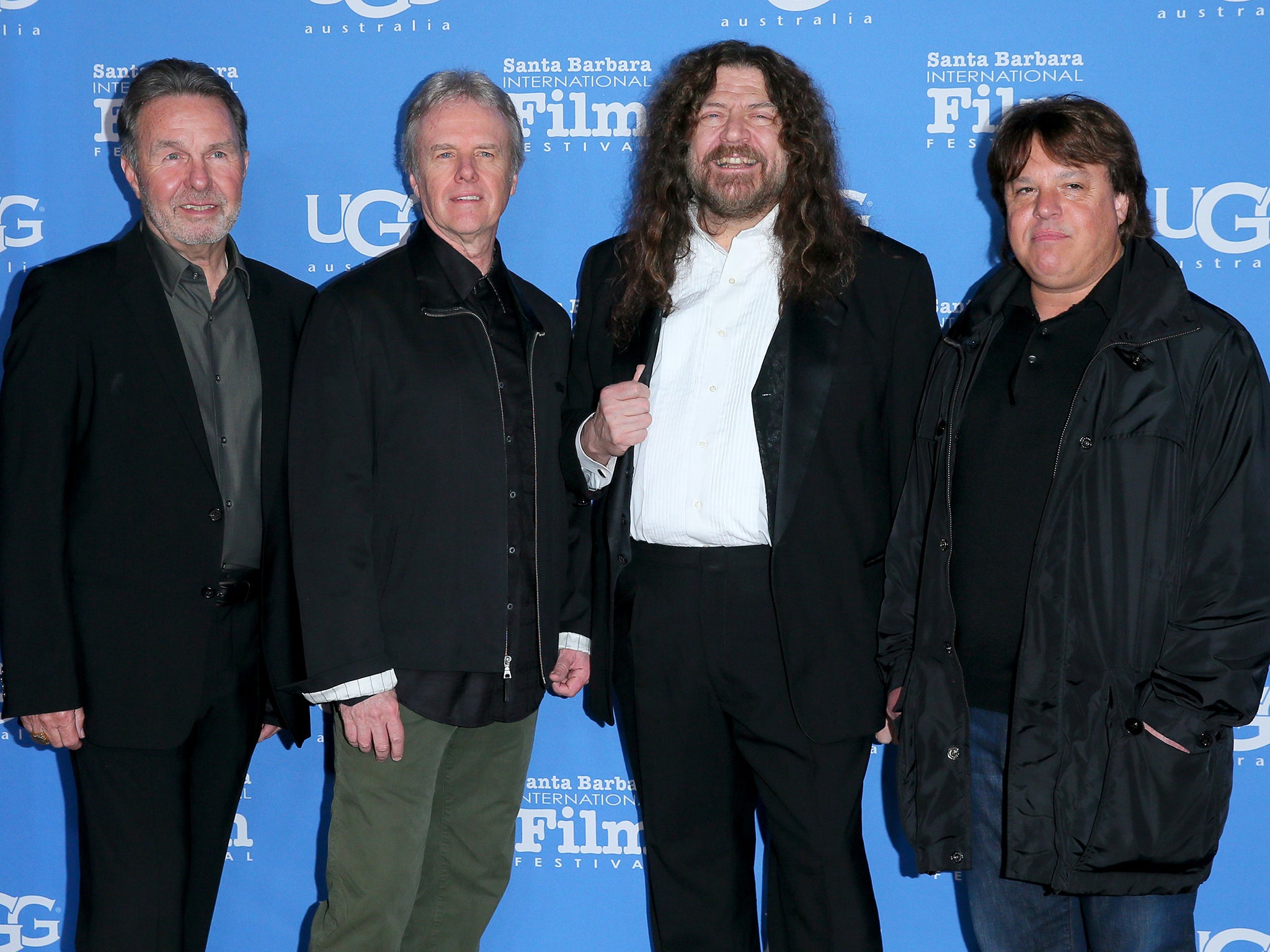Robby Steinhardt: Musician who gave Kansas their distinctive sound
The violinist, inseparable from his instrument and signature hair, brought harmony vocals to ‘Carry on Wayward Son’

Robby Steinhardt, who has died of pancreatitis aged 71, was a singer and classically trained musician whose violin playing with Kansas created the American band’s distinctive sound.
The group were influenced by British “progressive rock” outfits such as King Crimson and Jethro Tull. Steinhardt joined them in 1971 when they were performing as White Clover, a year before the name change to that of their home state.
Kansas were among the first acts whose music was labelled AOR – album-orientated rock – as they found a home on American FM radio, shipped more than 15 million albums and sold out stadiums for their concerts.
On stage, Steinhardt stood out with his beard and mountain of hair – and as the voice of the band. “Robby had a unique function as a violinist, second vocalist and MC in a live situation,” said guitarist and founding band member Kerry Livgren. “Robby was the link between the band on the stage and the audience.”
Steinhardt, Livgren and their fellow bandmates – keyboard player and singer Steve Walsh, guitarist Rich Williams, bassist Dave Hope and drummer Phil Ehart – worked hard at touring and eventually hit the American Top 10 with their 1976 album Leftoverture.
It spawned their first hit single, “Carry on Wayward Son”, which showcased another of the qualities that marked Kansas out from the crowd – Steinhardt’s harmony vocals.
The band’s next album, Point of Know Return (1977), gave them American hits with both the title track, one of the few Kansas songs to which Steinhardt contributed as a writer, and “Dust in the Wind” (1978), their most successful single, notable not just for its acoustic sound, but also Steinhardt double-tracking his violin with a viola for the instrumental solo.
Between 1974 and 1980, Kansas won gold or platinum awards for their seven studio albums and the 1978 live LP Two for the Show.

Then, the band’s line-up changed several times, with Walsh leaving to form Streets, Steinhardt pulling out in 1982 after pressure from his colleagues to end his drug habit, and Livgren and Hope heading off to start their own Christian rock band.
With Rick Moon, Steinhardt recorded and performed as Steinhardt-Moon and with Moon’s group Stormbringer until his return to Kansas for another stint, from 1997 to 2006. Although no longer touching the record charts, they toured prolifically again, averaging 100 shows a year.
Steinhardt’s skills were acknowledged when he was asked to join the collection of musicians featured on former Yes star Jon Anderson’s 2019 album 1000 Hands: Chapter One, ranging from Anderson’s former bandmates Steve Howe and Chris Squire to Jethro Tull’s Ian Anderson on flute and Chick Corea on piano.
Robert Eugene Steinhardt was born in Chicago in 1950 and adopted at four days old by Ilse (nee Boral), a clothing buyer for department store I Magnin & Co, and Milton Steinhardt, a music professor, both German immigrants.
When he was one year old, the family moved to Lawrence, Kansas, where Steinhardt’s father became director of music history at the state university. Seven years later, Steinhardt learned to play the violin and, while at Lawrence High School, was its concertmaster.
In 1971, he joined White Clover, some of whose members had previously performed as Kansas. A year later, they switched to that name and started touring.
Their 1974 self-titled album, Kansas, made little impression on the American charts, although eventually earned a gold disc for sales of more than half a million, as did the two follow-ups, Song for America (1975) and Masque (1976), which both broke into the American Top 100.
A cult following turned into wider appreciation, with other hit LPs including Monolith (1979), Audio-Visions (1980) and Vinyl Confessions (1982), although Kansas never found record success in Britain, failing to chart with their albums and reaching only No 51 with the single “Carry on Wayward Son”.
In 2013, Steinhardt suffered a heart attack and underwent a quadruple bypass operation. He embarked on playing live again by appearing with Stormbringer and, shortly before his death, was working with Michael T Franklin – producer of the Jon Anderson LP – on plans for a solo album and tour.
Steinhardt is survived by his wife, Cindy, and their daughter, Becky.
Robby Steinhardt, musician, born 25 May 1950, died 17 July 2021


Bookmark popover
Removed from bookmarks